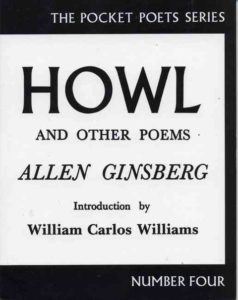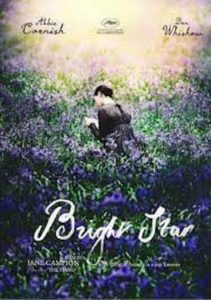
Howl and Other Poems
By Allen Ginsberg
57 pages
Originally published by Lawrence Ferlinghetti (City Lights Books) in 1956
After church service, but before we were allowed to go out on Sundays, my mother required us to recite a poem she had given us the previous morning. In my early years, I memorized such poems as “The Owl and the Pussy Cat.” In my adolescent years, I was able to choose what I put to memory. They tended to be poems like “The Highwayman”by Alfred Noyes and “Richard Cory” by Edwin Arlington Robinson.
It was not until I was in college that I first read a “modern” poem. And the first one I read, Allen Ginsberg’s “Howl,” was a life changer.
I try to read a book a week. Last week, I didn’t have time to start and finish another one. But while browsing through a bookshelf in K’s office, I came across the very copy of “Howl” that I first read in 1969. And I was delighted to discover that it had marginalia and lines that I had starred or underlined.
So you can get a feel for this poem, in case you’ve never read it, here are a few of the passages that I had highlighted…
From Part I
I saw the best minds of my generation destroyed by madness,
starving hysterical naked,
for an angry fix,
angelheaded hipsters burning for the ancient heavenly
connection to the starry dynamo in the machinery of night,
who poverty and tatters and hollow-eyed and high sat up
smoking in the supernatural darkness of cold-water flats
floating across the tops of cities contemplating jazz…
… who broke down crying in white gymnasiums naked and
trembling before the machinery of other skeletons,
who bit detectives in the neck and shrieked with delight in
policecars for committing no crime but their own wild
cooking pederasty and intoxication,
who howled on their knees in the subway and were dragged off
the roof waving genitals and manuscripts,
who let themselves be fucked in the ass by saintly motorcyclists,
and screamed with joy,
who blew and were blown by those human seraphim, the sailors,
caresses of Atlantic and Caribbean love…
From Part II
What sphinx of cement and aluminum bashed open their skulls
and ate up their brains and imagination?
Moloch! Solitude! Filth! Ugliness! Ashcans and unobtainable
dollars! Children screaming under the stairways! Boys sobbing
in armies! Old men weeping in the parks!
Moloch! Moloch! Nightmare of Moloch! Moloch the loveless!
Mental Moloch! Moloch the heavy judger of men!
Moloch the incomprehensible prison! Moloch the crossbone
soulless jailhouse and Congress of sorrows! Moloch whose
buildings are judgment! Moloch the vast stone of war!
Moloch the stunned governments!
Moloch whose mind is pure machinery! Moloch whose blood is
running money! Moloch whose fingers are ten armies!
Moloch whose breast is a cannibal dynamo! Moloch whose
ear is a smoking tomb!…dragging themselves through the negro streets at dawn looking
As you may have gathered from the above excerpts, “Howl” is a bit of a confessional poem. It brims with details that are now nostalgic of Ginsberg’s life as a key figure of the Beat Generation.
He first presented “Howl” at a poetry reading at Six Gallery bookstore in San Francisco. In the audience was Lawrence Ferlinghetti, a fellow writer and co-founder of City Lights Bookstore, who went on to publish “Howl” in a small paperback. Less than two years later, Ferlinghetti was arrested for publishing and selling copies of the poem, which had been deemed obscene. Though the case was widely publicized, a judge ultimately ruled that the poem displayed “redeeming social importance,” and Ferlinghetti was found not guilty. Today, it’s considered a seminal work of American literature.
I agree!



